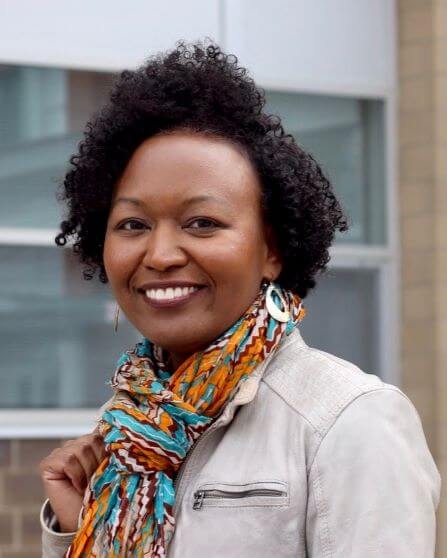- Home
- About Us
- The Team / Contact Us
- Books and Resources
- Privacy Policy
- Nonprofit Employer of Choice Award

 My last article, discussed the benefits of reframing the way we think about anti-racism work. My suggestion for the reframe was – let’s talk about anti-racism and inclusion practices as essential skills required for building and maintaining equitable workplaces.
My last article, discussed the benefits of reframing the way we think about anti-racism work. My suggestion for the reframe was – let’s talk about anti-racism and inclusion practices as essential skills required for building and maintaining equitable workplaces.
For those of you wondering how to “keep the kettle hot” as you continue to learn and apply anti-racism practices, I have another reframe insight for you.
Ruminate, to accelerate
It might seem counterproductive to pause and sit still, especially when you are trying to move forward or advance your work. I think rumination sometimes has a negative connotation because it is assumed that you are staying in a state of stillness for too long. In today’s society when we are often multi-tasking, scrolling mindlessly and moving from one thing to another without a break. In this environment, stopping to take a deep breath and to ruminate is critical.
The word ruminate is defined as thinking deeply about something or to turn (something) over in the mind; meditate (on). In the context of reframing your approach to anti-racism practice, ruminate means creating the space to reflect on your learnings, and to further sense making that can inform your actions and engagement.
“Ruminate, to accelerate” is akin to a coach asking for a timeout during a game to strategize and encourage players or interrupt the flow of the game in order to create a positive result. It’s like recess for children. They can only sit still and focus for so long. A change of pace, fresh air and play break enables them to regroup and refocus for another few hours.
How do you regroup and refocus when it comes to your equity and inclusion practice?
This practice of rumination, reflection or self-coaching is something that I am personally working on. I often find myself moving from meeting to meeting and project to project without a break, and then wondering what I did at the end of the day. This is my version of autopilot. So, I’ve been working on building in pauses in my day that create space for reflection and meaning making.
This is a work in progress, so I’m trying a few different things to interrupt my day and build in time-outs, breathers and a recess. I’m also trying to make it fun and easy, so that reflection and rumination becomes my norm.
Currently, the list of questions on my desk are:
My plan is to change the questions every quarter as a way to keep things interesting and fresh.
If you need help getting started with self-reflection, creating space for thinking, or rumination, consider investing in a coach or mentor. Having an accountability partner is another great way to “keep the kettle hot” on your equity and inclusion practice.
Chanel Grenaway has over 20 years of experience in the nonprofit sector focused on integrating equity and intersectionality practice into workplace cultures. She has worked with Foundations, multi-service nonprofit agencies and academic institutions. She currently supports leaders to improve their equity and inclusion outcomes through equity assessments, training and knowledge building, community engagement, and action planning. www.chanelgrenaway.com